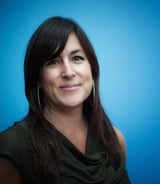Summary
Fleeing the horrors of war, only to find yourself trapped in a system of inadequate services there to aid your survival as a refugee, often leaves vulnerable women and children in a paradox of despair. For South Sudanese and Congolese refugees in Uganda's West Nile Region, this is a daily reality. This talk highlights the urgent need to redesign better support services in these camps and surrounding communities, challenging us as designers to advocate, through our practice, real change in a broken development sector.
Key Insights
-
•
Uganda hosts over 1.5 million refugees, with 60% being children, representing one of the world's largest refugee child crises.
-
•
The 70-30 land leasing policy in Uganda aims to allocate 70% of resources to refugees and 30% to host communities, but chronic underfunding undermines this.
-
•
Social tensions arise when host communities perceive refugees receive preferential access to services like healthcare and education.
-
•
Redemptive design combines human-centered and regenerative principles with systemic approaches to restore people, place, and time.
-
•
Research begins from the future vision to guide present actions—a 'from the future to the future' methodology.
-
•
Critical reflexivity and awareness of researcher positionality are essential when working with vulnerable refugee populations.
-
•
Incorporating diverse knowledge systems, including local beliefs such as witchcraft, enriches understanding and design approaches.
-
•
Facilitating hope is an active, intentional process necessary to help communities envision optimistic, sustainable futures.
-
•
Engaging donors through personalized conversations and shared future visions bridges gaps between funding priorities and community needs.
-
•
Sustainable solutions require engaging all system layers horizontally—community, policy, NGOs, and donors—and connecting them strategically.
Notable Quotes
"Will you become an advocate for the world’s most vulnerable voices muffled in complex systems?"
"Uganda is Africa’s largest refugee host nation with over 1.5 million refugees, mostly children, yet this crisis remains underreported."
"There have been deadly fights in clinics as locals assumed refugee children were favored, exposing deeper systemic issues."
"Redemption means buying back or restoring something to its rightful place, transforming adversity into hope."
"You have to engage every layer of the system—from local communities to NGOs and government power structures—to create change."
"We always begin our research from the future to the future: start with the community’s envisioned future to guide design."
"Hope is not passive; it is proactive and must be facilitated carefully, especially where optimism is scarce."
"Knowing your positionality as a researcher is critical because refugees often fear losing their status and have precarious rights."
"Witchcraft and occult practices influence community cohesion issues; embracing these local knowledge systems is vital."
"There are never truly conflicting futures between donors and communities—your job is to find the bridge that unites them."
Or choose a question:















More Videos

"Design operations ensures the processes and systems are in place so designers can create their best work."
Angelos ArnisNavigating the Rapid Shifts in Tech's Turbulent Terrain
October 2, 2023

"Design ops is about operationalizing, orchestrating, and optimizing people, process, and platform."
John Calhoun Rachel PosmanBring your DesignOps Story to Life! The Definitive DesignOps Book Jam
October 3, 2023

"Try to approach your work like a business person with design skills rather than a designer in a business."
Alfred KahnA Seat at the Table: Making Your Team a Strategic Partner
November 29, 2023

"It’s never all or nothing — product success must balance user needs and business constraints."
Dan WillisEnterprise Storytelling Sessions
June 3, 2019

"The pain you feel in driving change is the pain of growth—you have to sign up for it and keep going."
John Maeda Alison RandAbout Design Organizations (Videoconference)
May 13, 2019

"Engineers now ask better questions and make more informed design and technology decisions with the context we provided."
Anat Fintzi Rachel MinnicksDelivering at Scale: Making Traction with Resistant Partners
June 9, 2022

"The seven-foot-wide diagram showed the product’s true complexity, sparking necessary conversations with leadership."
Uday GajendarThe Wicked Craft of Enterprise UX
May 13, 2015

"2020 was focused on resilience, collaboration challenges, burnout, and attrition during the pandemic."
Kristin SkinnerTheme 1 Intro
September 29, 2021

"Before stage in customer journey is so important—it sets customers up for success by making pages findable and clear through SEO and self-assessment tools."
Maish NichaniSparking a Service Excellence Mindset at a Government Agency
December 9, 2021
















